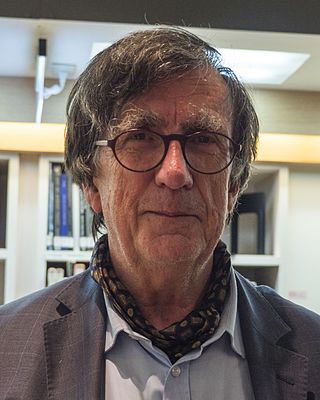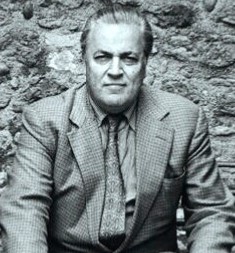Related Research Articles

Deliberation is a process of thoughtfully weighing options, for example prior to voting. Deliberation emphasizes the use of logic and reason as opposed to power-struggle, creativity, or dialogue. Group decisions are generally made after deliberation through a vote or consensus of those involved.

Gabriel Tarde was a French sociologist, criminologist and social psychologist who conceived sociology as based on small psychological interactions among individuals, the fundamental forces being imitation and innovation.

Science studies is an interdisciplinary research area that seeks to situate scientific expertise in broad social, historical, and philosophical contexts. It uses various methods to analyze the production, representation and reception of scientific knowledge and its epistemic and semiotic role.

Bruno Latour was a French philosopher, anthropologist and sociologist. He was especially known for his work in the field of science and technology studies (STS). After teaching at the École des Mines de Paris from 1982 to 2006, he became professor at Sciences Po Paris (2006–2017), where he was the scientific director of the Sciences Po Medialab. He retired from several university activities in 2017. He was also a Centennial Professor at the London School of Economics.

Michel Serres was a French philosopher, theorist and writer. His works explore themes of science, time and death, and later incorporated prose.

The sociology of scientific knowledge (SSK) is the study of science as a social activity, especially dealing with "the social conditions and effects of science, and with the social structures and processes of scientific activity." The sociology of scientific ignorance (SSI) is complementary to the sociology of scientific knowledge. For comparison, the sociology of knowledge studies the impact of human knowledge and the prevailing ideas on societies and relations between knowledge and the social context within which it arises.
The science wars were a series of scholarly and public discussions in the 1990s over the social place of science in making authoritative claims about the world. Encyclopedia.com, citing the Encyclopedia of Science and Religion, describes the science wars as the
David Bloor is a British sociologist. He is a professor in, and a former director of, the Science Studies Unit at the University of Edinburgh. He is a key figure in the Edinburgh school and played a major role in the development of the field of science and technology studies. He is best known for advocating the strong programme in the sociology of scientific knowledge, most notably in his book Knowledge and Social Imagery.

Hylozoism is the philosophical doctrine according to which all matter is alive or animated, either in itself or as participating in the action of a superior principle, usually the world-soul. The theory holds that matter is unified with life or spiritual activity. The word is a 17th-century term formed from the Greek words ὕλη and ζωή, which was coined by the English Platonist philosopher Ralph Cudworth in 1678.

Anthony Meredith Quinton, Baron Quinton, FBA was a British political and moral philosopher, metaphysician, and materialist philosopher of mind. He served as President of Trinity College, Oxford from 1978 to 1987; and as chairman of the board of the British Library from 1985 to 1990. He is also remembered as a presenter of the BBC Radio programme, Round Britain Quiz.

Politics of Nature: How to Bring the Sciences Into Democracy is a book by the French theorist and philosopher of science Bruno Latour. The book is an English translation by Catherine Porter of the French book, Politiques de la nature. It is published by Harvard University Press.

Isabelle Stengers is a Belgian philosopher, noted for her work in the philosophy of science. Trained as a chemist, she has collaborated with Russian-Belgian chemist Ilya Prigogine and French philosopher/sociologist Bruno Latour among others, and has written widely on the history of science as well as philosophers such as Gilles Deleuze, Alfred North Whitehead, Donna Haraway, and Michel Serres.
Factual relativism argues that truth is relative. According to factual relativism, facts used to justify claims are understood to be relative and subjective to the perspective of those proving or falsifying the proposition.
Philosophy of design is the study of definitions of design, and the assumptions, foundations, and implications of design. The field, which is mostly a sub-discipline of aesthetics, is defined by an interest in a set of problems, or an interest in central or foundational concerns in design. In addition to these central problems for design as a whole, many philosophers of design consider these problems as they apply to particular disciplines. Although most practitioners are philosophers of aesthetics, several prominent designers and artists have contributed to the field. For an introduction to the philosophy of design see the article by Per Galle at the Royal Danish Academy.

Graham Harman is an American philosopher. He is Distinguished Professor of Philosophy at the Southern California Institute of Architecture in Los Angeles. His work on the metaphysics of objects led to the development of object-oriented ontology. He is a central figure in the speculative realism trend in contemporary philosophy.

Vinciane Despret is a Belgian philosopher of science. She is an associate professor at the University of Liège and the Université libre de Bruxelles, both in Belgium.
Post-truth is a term that refers to the 21st century widespread documentation of and concern about disputes over public truth claims. The term's academic development refers to the theories and research that explain the historically specific causes and the effects of the phenomenon. In the United States, Donald Trump has been characterized as engaged in a "war on truth."
In literary criticism and cultural studies, postcritique is the attempt to find new forms of reading and interpretation that go beyond the methods of critique, critical theory, and ideological criticism. Such methods have been characterized as a "hermeneutics of suspicion" by Paul Ricœur and as a "paranoid" or suspicious style of reading by Eve Kosofsky Sedgwick. Proponents of postcritique argue that the interpretive practices associated with these ways of reading are now unlikely to yield useful or even interesting results. As Rita Felski and Elizabeth S. Anker put it in the introduction to Critique and Postcritique, "the intellectual or political payoff of interrogating, demystifying, and defamiliarizing is no longer quite so self-evident." A postcritical reading of a literary text might instead emphasize emotion or affect, or describe various other phenomenological or aesthetic dimensions of the reader's experience. At other times, it might focus on issues of reception, explore philosophical insights gleaned via the process of reading, pose formalist questions of the text, or seek to resolve a "sense of confusion."
William T. Myers is an American philosopher and Professor of Philosophy at Birmingham-Southern College. He is known for his works on process philosophy and American philosophy.
References
- ↑ "Coming Out as a Philosopher". Bruno Latour. Retrieved 7 January 2013.